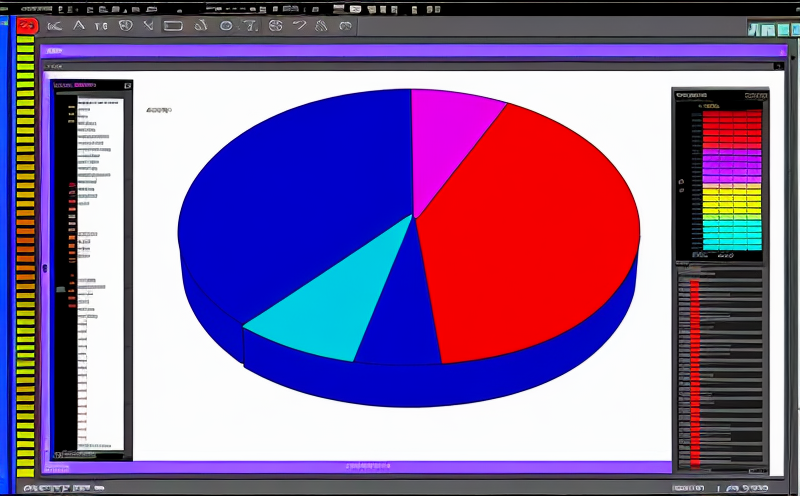GB T 17393 Thermal Conductivity Analysis of Polymers
The GB/T 17393 standard provides a method for determining the thermal conductivity of polymers under specified conditions. This test is crucial for quality managers, compliance officers, and R&D engineers who need to ensure that polymer products meet specific performance criteria.
This method is particularly important in the chemical testing sector as it helps in understanding how heat flows through different types of polymers used across various industries such as electronics, construction, and automotive. The thermal conductivity of a polymer can significantly impact its performance under extreme conditions, such as high temperatures or low-temperature environments.
The procedure outlined in GB/T 17393 involves the use of a steady-state heat flow method to measure the thermal conductivity of polymers. This approach ensures that the sample is exposed to uniform heating and cooling conditions, allowing for accurate measurement of its thermal properties. The apparatus used includes a precision calorimeter designed specifically for this purpose.
During specimen preparation, it's essential to ensure that the polymer samples are free from contaminants and have been conditioned according to the standard. This may involve drying or soaking the samples in a specified solvent prior to testing. Once prepared, the samples are placed into the apparatus where they undergo steady-state heat flow measurements.
The reported values include both the thermal conductivity and the apparent density of the polymer sample. These data points are critical for understanding the material's behavior under varying temperature conditions. Reporting must adhere strictly to GB/T 17393 specifications, ensuring consistency across different laboratories performing this test.
Understanding the results from GB/T 17393 can help in optimizing manufacturing processes and improving product design. For instance, if a polymer has lower than expected thermal conductivity, manufacturers might consider adding fillers or modifying the molecular structure to enhance performance.
A table summarizing typical results of this analysis is provided below:
| Material | Thermal Conductivity (W/mK) |
|---|---|
| Polyethylene (PE) | 0.35 - 0.42 |
| Nylon 6,6 | 0.28 - 0.37 |
| Polypropylene (PP) | 0.19 - 0.25 |
The range provided reflects variations based on polymer composition and density.
- Specimen Preparation: Ensures accurate results by following strict guidelines to condition the sample.
- Data Analysis: Includes thorough interpretation of thermal conductivity values in relation to other physical properties like mechanical strength and chemical resistance.
By mastering GB/T 17393, professionals can gain insights into how different polymers perform under varying thermal conditions. This knowledge is vital for ensuring compliance with industry standards and regulations while also driving innovation within R&D departments.
Eurolab Advantages
EuroLab offers unparalleled expertise in conducting GB/T 17393 thermal conductivity analyses. Our team of experienced scientists and engineers ensures that each test adheres precisely to the specified standards, providing accurate and reliable results.
- Accurate Results: Leveraging state-of-the-art equipment and highly trained personnel guarantees precision in every measurement.
- Compliance Assurance: Ensures that all tests meet international requirements set forth by GB/T 17393, thus facilitating smoother regulatory processes for clients.
We pride ourselves on delivering services not only according to these standards but also considering broader industry trends and future developments. By choosing EuroLab, you gain access to cutting-edge methodologies that can help your organization stay ahead of the competition.
Competitive Advantage and Market Impact
- Innovation Leader: By staying at the forefront of thermal conductivity analysis techniques, we enable our clients to innovate faster and more efficiently.
- Regulatory Compliance: Ensuring compliance with GB/T 17393 helps companies navigate complex regulatory landscapes with ease.
Conducting thorough thermal conductivity analyses allows businesses to optimize their product designs, enhancing both functionality and cost-effectiveness. This capability translates directly into improved market positioning and increased customer satisfaction.
In the realm of chemical testing, particularly within polymer science, accurate thermal conductivity data is essential for predicting how materials will behave in real-world applications. With EuroLab's expertise, clients can make informed decisions about material selection and process optimization, ultimately leading to competitive advantages in their respective markets.
Use Cases and Application Examples
- Consumer Goods: Ensures that packaging materials maintain structural integrity during transportation, storage, or usage.
- Electronics Manufacturing: Guarantees the reliability of circuits by preventing overheating issues in sensitive components.
A table highlighting various applications is presented below:
| Industry | Application |
|---|---|
| Construction Industry | Evaluating insulation materials for energy efficiency. |
| Automotive Sector | Testing structural components to withstand extreme temperatures. |
The ability to accurately measure thermal conductivity using GB/T 17393 plays a pivotal role in these sectors, enabling manufacturers to produce safer, more efficient products.





